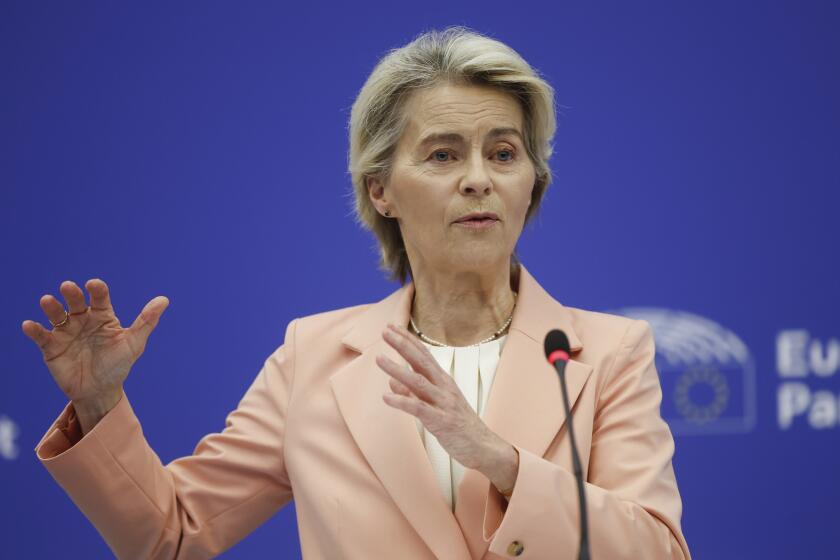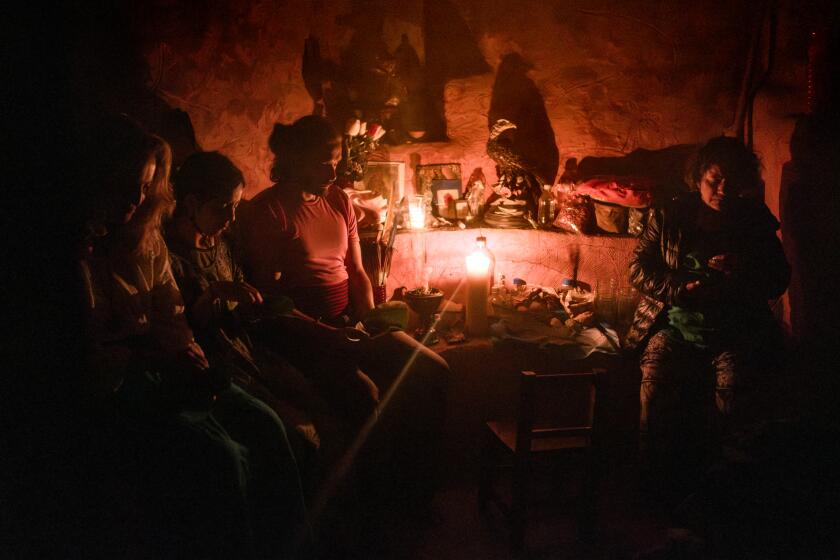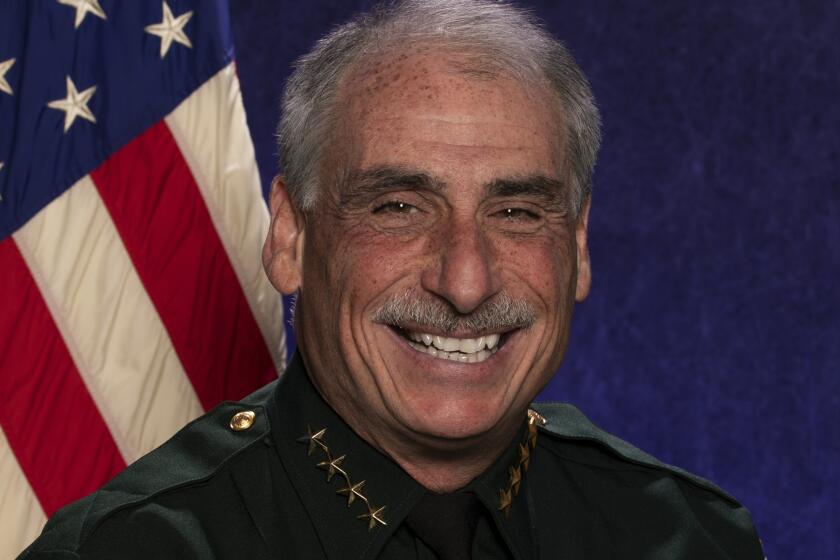U.S. Criticized Over Secret Jails in War on Terror
The president of the International Committee of the Red Cross praised the U.S. decision to treat terrorism suspects according to the Geneva Convention, but said Thursday that they should not be held in secret, an implicit reference to the CIA’s interrogation program.
Jakob Kellenberger, president of the Geneva-based committee, said he had concerns with the Military Commissions Act, which President Bush signed into law Tuesday. He criticized the law’s broad definition of “enemy combatant” and its lack of rights for detainees to challenge their incarceration.
Speaking at Georgetown University, Kellenberger also criticized provisions that made some violations of the Geneva Convention’s Common Article 3 less serious than others. Common Article 3 establishes baseline treatment standards for all detainees, including combatants who are not in a regular army.
Nonetheless, Kellenberger, a former Swiss diplomat, said the recognition of Common Article 3 -- especially by the Defense Department as a new policy -- was a positive development.
“Common Article 3 is, and must remain, a legal baseline from which no departure may be allowed,” he said. “Common Article 3 expresses minimum obligations with respect to persons detained.”
Kellenberger argued that to conform with Common Article 3, officials must inform detainees of the reason for their detention and allow them to challenge it before an impartial body. He said that contact with family members must be allowed and that secret detention was forbidden.
“In no case may persons be held in unacknowledged detention,” he said.
Although he was speaking in diplomatic language, Kellenberger’s comments represented criticism of the CIA, which has not registered its prisoners held under harsh detention and interrogation conditions with the international organization.
When Bush publicly confirmed the existence of the formerly secret CIA prison program last month, he said there was no longer anyone in the prisons. However, White House spokesman Tony Snow this week refused to say whether the CIA was currently holding anyone in detention.
The Geneva Convention lays out specific requirements for registering prisoners of war -- generally uniformed members of a state’s military -- with the International Committee of the Red Cross.
In addition to offering humanitarian aid to victims of armed conflict, the organization monitors prisons where fighters are held captive and urges warring parties to follow the provisions of international law.
The Department of Defense has adopted a new detainee policy that requires the military to register its detainees, including those they call “unlawful combatants,” with the Red Cross. The CIA has made no such promise.
Congressional aides said a requirement that the CIA register its prisoners was not directly discussed during the negotiations over the law. But congressional supporters of the new law believe its recognition of minimum standards will pressure the Bush administration to register its prisoners.
In recent interviews, U.S. government officials said they had not ruled out that the international Red Cross might be given access to U.S. prisons. Because the organization maintains a code of strict confidentiality, the names of CIA prisoners might still be kept from dissemination, even if they are registered with the organization.
Common Article 3 does not explicitly ban secret detention, saying only that the Red Cross “may offer its services.” The Red Cross committee’s lawyers believe secret detention is illegal based on international humanitarian treaties and customary law. Kellenberger said that other “bodies and sources of law” should be used to develop detention policies that comply with Common Article 3.
Cully Stimson, deputy assistant secretary of Defense for detainee affairs, said in an interview Thursday that the disclosure was not required by international law, but added that Red Cross inspection of Defense Department prisons helped him do his job better. Red Cross inspections, he said, ensure that problems in the department’s prisons are fixed.
“Our mission is to provide a safe, secure and humane detention environment for our enemy, for those suspected of being enemy combatants,” he said. “The ICRC allows me to get the information that is out there to weigh whether we are accomplishing our mission.”
More to Read
Sign up for Essential California
The most important California stories and recommendations in your inbox every morning.
You may occasionally receive promotional content from the Los Angeles Times.










